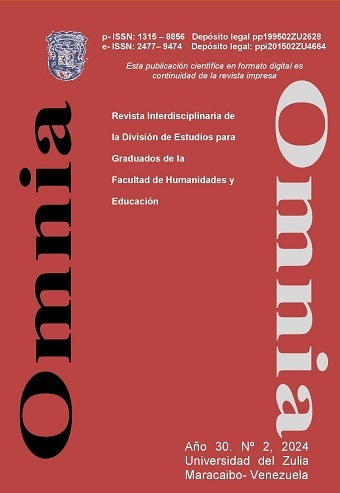Grounded theory. An alternative methodological in qualitative research
Abstract
This essay deals with the Grounded Theory as an alternative to the methodology in qualitative research based on data as a research method that facilitates the approach of any study that is related to issues of behaviors, emotions, feelings, daily experiences and other phenomena. That are addressed through the social sciences. The Grounded Theory proposes to build theoretical foundations starting directly from the observations made by the researcher. The analysis of this method is proposed through its conceptualization, characteristics, stages, methods and methodological alternative. This theory represents a change that broadens the approach to a complex reality through the inductive method, which marks the difference from traditional approaches
Downloads
References
Glaser, Barney y Strauss, Anselm (1965). Awareness of dying. Chicago: Aldine.
_____________ (2009). The discovery of grounded theory. Chicago: Aldine.
Glaser, Barney y Holton, Judith (2005). Remodeling grounded theory [Remodelar la teoría fundamentada]. Forum: Qualitative Social Research, 5(2), 1-17. Disponible: http://nbn-resolving.de/urn:nbn:de:0114-fqs040245. [Consulta: 2012, Agosto 16].
Goulding, Christina (2002). Grounded theory: A practical guide for managemet, business and market researche. London. Sage publi-cations
Heath, Heath y Cowley, Sarah (2004). Developing a grounded theory approach: a comparison of Glaser and Strauss. International Journal of Nursing Studies, 41(2), 141-150. doi: https://doi.org/10.1016/S0020-7489(03)00113-5 [ Links ]
Monje, Carlos (2011). Metodología de la invitación cuantitativa y cua-litativa. Guía didáctica. Colombia: Universidad Sur Colombia/ fa-cultad de ciencias sociales y humanas.
Morris, Kimberlynne (2000). Fitting in: a game of life and how it is played; the application of agrounded theory in the classroom (Doctoral dissertation, The Fielding Graduate Institute).
Páramo, Dagoberto (2015). “La teoría fundamentada (Grounded Theory), metodología cualitativa de investigación científica”. Revista Pensamiento y gestión, Año 15, No 39, Colombia. Universidad del Norte, pp 119-146.
Pirela, Johann; Blanco, Neligia y Nones, Nelly (2004) Artículo “Modelo de la Teoría Fundamentada de Glaser y Strauss: Una alternati-va para el abordaje cualitativo de lo social. Revista OMNIA N° 1.
Rodríguez, Daniela (2020). Teoría fundamentada: origen, característi-cas, ejemplos. Lifeder. Recuperado de https://www.lifeder.com/teoria-fundamentada/.50-5Valley C.A.: Sociology Press.
Strauss, Anselm y Juliet Corbin (2016). Bases de la investigación cuali-tativa. Técnicas y procedimientos para desarrollar la teoría fundamentada. Colombia. Editorial Universidad de Antioquia.





